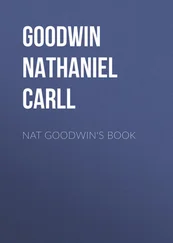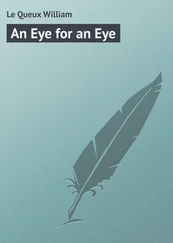Jason Goodwin - An Evil eye
Здесь есть возможность читать онлайн «Jason Goodwin - An Evil eye» весь текст электронной книги совершенно бесплатно (целиком полную версию без сокращений). В некоторых случаях можно слушать аудио, скачать через торрент в формате fb2 и присутствует краткое содержание. Жанр: Исторический детектив, на английском языке. Описание произведения, (предисловие) а так же отзывы посетителей доступны на портале библиотеки ЛибКат.
- Название:An Evil eye
- Автор:
- Жанр:
- Год:неизвестен
- ISBN:нет данных
- Рейтинг книги:3 / 5. Голосов: 1
-
Избранное:Добавить в избранное
- Отзывы:
-
Ваша оценка:
- 60
- 1
- 2
- 3
- 4
- 5
An Evil eye: краткое содержание, описание и аннотация
Предлагаем к чтению аннотацию, описание, краткое содержание или предисловие (зависит от того, что написал сам автор книги «An Evil eye»). Если вы не нашли необходимую информацию о книге — напишите в комментариях, мы постараемся отыскать её.
An Evil eye — читать онлайн бесплатно полную книгу (весь текст) целиком
Ниже представлен текст книги, разбитый по страницам. Система сохранения места последней прочитанной страницы, позволяет с удобством читать онлайн бесплатно книгу «An Evil eye», без необходимости каждый раз заново искать на чём Вы остановились. Поставьте закладку, и сможете в любой момент перейти на страницу, на которой закончили чтение.
Интервал:
Закладка:
Yashim wondered how Fevzi Ahmet had come by the yali. Armenian merchants, Greeks in the banking line, privileged governors who sojourned for a season in the capital when their own gubernatorial konaks sweltered in provincial deserts: these were the men who took yali, owned them or borrowed them, with landing stages at the water’s edge and shady gardens for their ladies to sit in through the hotter months.
Yashim sometimes dreamed of a yali himself, a small wooden house where the water would bounce light onto the ceiling and he would fish with a line; Palewski had said it was the Greek in him. But that was only in the summer months, when Yashim’s small apartment in Balat could be stifling and the breeze failed to lick through the open window. In the winter, the yali lost their charms. Even a yali a few miles along the Bosphorus could be cut off by storms and ice, no closer to Istanbul than the Rhodopes or the mountains of Anatolia. Mountain houses were snug and solid, while in winter, the airy yali revealed their drafts; damp seeped into their floors; cold sank through their walls. Shuttered and forlorn, the yali of the Bosphorus sat out the snows until the spring returned: the trees put out their leaves for summer shade, the cold retired, the damp was cleared by a few days’ sun and the passage of air through rooms that had been locked for months.
But Fevzi Pasha had clung to his yali throughout the year: Yashim had seen the smoke rising from the chimney. And now it was gone, hollowed out like a candle in its socket, only a few charred timbers pointing wickedly toward the sky.
Yashim went along the path to where he had once stood by the front door. The building was already returning to the soil. Weeds had sprouted and withered in the ash. He stirred the ashes with his foot and dislodged a sour, acrid smell.
He took a step back. Mrs. Satzos had been right: there was always a thread to be unraveled in a man’s life; a question you could ask about this house whose answer would lead ten years down the line to a Kapudan pasha sailing his fleet into the harbor at Alexandria. A question about a pile of charred wood that would explain his treason.
The day was cold and overcast. Yashim turned his back on the ruins and walked on to the next village. The fishermen had erected tiny platforms, like crows’ nests, between an arrangement of poles, and between the platforms hung nets of heartbreaking length, straining the current for fish.
89
Talfa advanced to the divan and performed a temmena, not quite brushing the floor.
“I hope you are well, valide.”
“As can be expected, Talfa.” The valide took a long breath. “And you, I hope, continue in good health?”
“Inshallah, by the grace of God,” Talfa replied automatically. “I grow a little every day,” she added, with a giggle.
“You were always too fond of sweetmeats,” the valide remarked. She glanced past Talfa, to the slender little girl who stood quietly to one side. “And who have we here?”
Talfa half turned. “My daughter, valide,” she said in surprise. “Necla. I said I would bring her.”
“Of course you did.” The valide held out her hand, and Necla stepped forward to kiss it.
“Very pretty,” the valide said.
Talfa frowned slightly. “Her skin will get lighter. Girls of her age are often a little dark.”
Her eyes flickered about the valide’s chamber. The valide gestured to some inlaid stools, and patted the divan.
“Please, be seated.”
Conversation languished while the serving girl brought in coffee on a tray, and pipes.
“You may smoke, Talfa. I find it disagrees with me, but I quite like the smell,” the valide remarked, truthfully. The whiff of tobacco reminded her of Martinique: of stinky carriages, and Creole weddings, and of her father talking business on the veranda, with a cigar. Sometimes she would creep onto his lap and fall asleep there, listening to the rumble of male conversation and laughter. In the still, dark air a lamp would be burning. The men drank rum and played bezique. Down in the lines, the African slaves were beating their drums softly. A tac-tac bird screamed in the trees beyond the garden.
She started. She opened her eyes and was surprised to see a dumpy woman sitting beside her, puffing on an amber stem held between her teeth.
“Who have we here?” she said; but perhaps she only imagined she had spoken, because the dumpy woman kept puffing away and darting her eyes about the room.
“Aimee! Aimee!” She could hear them calling for her, a long way off, but she didn’t care. They would make her sit in a close, stuffy room to do needlepoint with Tante Merib. It was nicer in the soft grass, once she’d kicked off those little shoes with wooden soles. She pulled off her calico trousers and chucked them into a bush, and then her bonnet, and her ribbons.
She felt the sun hot on her face and on the top of her head.
She stepped into the brown water with her hands raised.
“Aimee! Reponds-moi! Ou est-tu? Aimee?” A little closer now. The water was as warm as it looked and the mud was squishy between her toes. All the little blacks played here, and Aimee knew why.
The fastenings on her bodice were the hardest to undo. She was only six, after all. She wriggled and pulled, but the dress caught under her arms and then, as she tottered forward in the water, it puffed up around her and she went off sailing… Sailing like a little boat!
A big black man had jumped in to get her out when she was already half sunk, and the family had arrived at the bank of the waterhole. They’d followed her trail, they said.
After, Papa used to call her his petit paquebot. She smiled. She’d forgotten that.
Talfa cleared her throat, and stood up.
“Say goodbye nicely, Necla.”
They performed temmena politely, and withdrew backward.
Talfa was, in her way, a grand personage; but the valide outranked her.
“Come, Necla. Hyacinth can take us to visit the other ladies now.”
90
The road dipped behind a row of sheds that ran down to the water’s edge. They were roughly planked, beneath a patchwork of tiled and shingled roofs, and from one of them a crooked pipe leaked a haze of smoke. Yashim could smell the resin in the clear air.
In a low, open-fronted boathouse, a man was working on his boat. Now and then he set down his tools and wrapped his icy fingers around a ball of dirty wool, to get them warm enough for the delicate reshellacking of the hull.
He noticed Yashim out of the corner of his eye and straightened up.
“Something smells good,” Yashim said, smiling.
The workman glanced at him, and then at the pot bubbling on the brazier.
“My own recipe, efendi. Fish. Turps. The fish is mostly bones.”
“It must have been the turpentine.” Yashim peered further around the door, hovering.
“Are you looking for someone, efendi? Please, step inside.”
Yashim had often passed these boatyards. He noticed the broom, and the dangling blue glass eyes on a peg, and the pots of brushes standing on the bench. He always liked a workshop, each ranged with tools common and special, the battered, dripped-on workbench, the perpetual fire of a brazier, the tamped-down earth floor tidy in the morning, and by nightfall cluttered with debris.
“You’re repainting her?”
“I need to do it well, efendi, the paint and the lacquer. People think a boat is just wood, but that’s really only the beginning, you see? It’s what you do next that decides how she rides, how she looks-and how long she lasts, of course.”
Yashim cast a critical eye along the black, tapered hull of the caique.
“That’s not just ordinary pine, efendi.” The boatman gestured with his brush, unable to conceal the pride in his voice. “It’s slow-grown, Black Sea. And a cedar keel, same as the sultan’s own caique, if you’ll forgive me for saying so. That’s one of the reasons she’s lasted so well.”
Читать дальшеИнтервал:
Закладка:
Похожие книги на «An Evil eye»
Представляем Вашему вниманию похожие книги на «An Evil eye» списком для выбора. Мы отобрали схожую по названию и смыслу литературу в надежде предоставить читателям больше вариантов отыскать новые, интересные, ещё непрочитанные произведения.
Обсуждение, отзывы о книге «An Evil eye» и просто собственные мнения читателей. Оставьте ваши комментарии, напишите, что Вы думаете о произведении, его смысле или главных героях. Укажите что конкретно понравилось, а что нет, и почему Вы так считаете.












